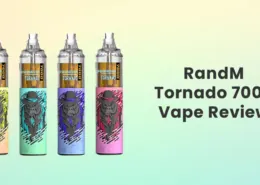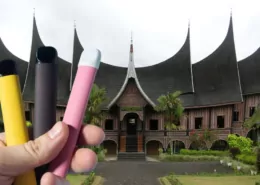Italy Introduces New E-Cigarette Tax and Online Nicotine Sales Ban in 2025
Vaping Market Faces Significant Changes as Government Implements Stricter Regulations
On January 1, 2025, two significant changes will come into effect in the Italian vaping market, despite the government and Parliament not directly intervening in this year’s budget law to modify vaping regulations. These changes, although anticipated for some time, are expected to have a substantial impact on market dynamics, particularly concerning online sales and the tax burden on e-liquids with and without nicotine and flavorings.
The first change involves the adjustment of the consumption tax on nicotine-containing e-liquids. From January 2025, the discount percentage will decrease by one percentage point, bringing it from 15% to 16% compared to the excise tax on tobacco. This adjustment, already provided for in the budget law two years ago, will continue in the coming years, with the tax set to increase further by one point in 2026, reaching 17%. As a result, a 10-milliliter bottle of nicotine-containing e-liquid will see a price increase of approximately 11 cents in 2025 and an additional 12 cents in 2026. Nicotine-free e-liquids and flavorings will also face similar increases, with a tax of about 90 cents per 10 milliliters in 2025 and around one euro in 2026.
The second change pertains to the online sale of vaping products. Starting from January 2025, a ban will be introduced, preventing the online sale of nicotine-containing e-liquids. This measure, strongly pushed for by the Italian Tobacconists Federation, aims to treat nicotine-containing products in the same manner as traditional cigarettes, which cannot be sold online. The ban applies to all online sales, including those from fiscal warehouses, and is expected to impact hundreds of thousands of consumers.
The online sales ban marks a significant shift in the vaping market, directly affecting consumer habits and the economic dynamics of the sector. Companies that had adapted to the rules imposed by the State and based their main business on online sales now find their business model questioned by the same State that has once again overturned the regulations. This change in rules is expected to create challenges for vaping companies as they navigate the new market landscape.
As Italy introduces stricter regulations on e-cigarettes, the vaping industry must prepare for the impact of the new consumption tax and the ban on online nicotine sales. These changes are likely to reshape the market and influence consumer behavior, presenting both challenges and opportunities for businesses operating in the sector.
- Bestselling Vapes in UK After Disposable Ban: What to Stock 2025 - August 8, 2025
- Argentina Debates Stricter Vape Laws Amid Prohibition Failures - August 8, 2025
- Nigeria Advocacy Group Urged to Hike Tobacco & Vape Tax by 100% - August 8, 2025








